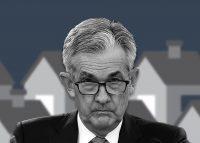Colony Capital chairman and CEO Tom Barrack thinks the commercial mortgage market in the United States is on the verge of collapsing.
Barrack wrote in a white paper, posted to Medium late Sunday, that the coronavirus pandemic and subsequent shutdown of sectors of the U.S. economy could lead to margin calls, foreclosures, evictions and potential bank failures. He claimed the impact of this could be greater than the impact of the Great Depression.
“Immediate concerted action must be taken to fend off this crisis and avoid the need for a taxpayer-funded bailout of the real estate market and banks,” Barrack wrote. “In particular, the banks, mortgage REITs and debt funds must agree on a collaborative solution — implemented with the reinforcement and support of federal government policy — to ensure stability moving forward.”
The paper specifically focuses on how fragile mortgage real estate investments trusts are, along with the lenders and credit funds that give them liquidity through repurchase financing.
Barrack advocates a rescue plan that would include $500 billion of taxpayer funds to inject liquidity into the financial system, temporary suspensions of mark-to-market accounting and delaying a new accounting rule that governs the recognition of credit losses until 2024.
On Monday morning, the Federal Reserve announced a plan to unclog credit by expanding its facilities to include different types of municipal and corporate debt. Its mortgage security purchases from last week are now unlimited, it’s planning to buy $250 billion worth of mortgage securities this week and it will start purchasing commercial mortgage-backed securities that were issued by government-supported entities.
Barrack is a longtime friend of President Donald Trump, and much of his company’s investments are in real estate or tied to real estate, including $3.54 billion of assets in hospitality real estate assets and $725 million of debt and equity investments in its real estate investment trust Colony Credit Real Estate. [Medium, Bloomberg] — Eddie Small
Read more on financial markets during the age of coronavirus




